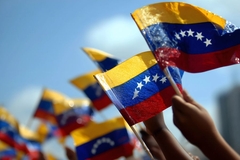
- Industry news
Industry news
- Category news
Category news
- Reports
- Key trends
- Multimedia
- Journal
- Events
- Suppliers
- Home
- Industry news
Industry news
- Category news
Category news
- Reports
- Key trends
- Multimedia
- Events
- Suppliers
Trade liberalizations to support war-torn Ukraine cause EU market disruptions, warns Copa-Cogeca
Producers of grain, poultry and sugar across member states face closures

19 Feb 2024 --- European agri-food and farming group Copa-Cogeca claims numerous agricultural commodities are failing to reach their intended markets and ending up competing within the European Community market.
Trade liberalization and export measures like Autonomous Trade Measures (ATMs) were initially introduced by the European Commission (EC) in June 2022 to show its unwavering support for Ukraine and its economy during the initial Russian invasion and subsequent conflict.
ATMs facilitated the much-needed transit of Ukrainian agricultural products through continental Europe to Africa and the Middle East. At the time, this was billed as a “short-term solution.”
But two years later, they remain in place, with the EC recently proposing to renew the suspension of import duties and quotas on Ukrainian exports to the EU for another year.

If the plans are approved, ATMs will apply until June 2024.
The proposals are to be considered by the European Parliament and the Council of the European Union.
Tariff-free trade a “contentious issue”
Due to the ATMs and their impact on the EU agri-food markets, farmers in Romania, Bulgaria, Poland, Hungary and Slovakia are struggling to sell their products, according to Copa-Cogeca. And when they manage, prices are around 40% below the standard market price.
Copa-Cogeca points out that this issue doesn’t just impact countries close to Ukraine’s border. Grain, poultry and sugar producers from Austria, France, Belgium, Germany and the Netherlands are experiencing significant pressure.
This tension has now “escalated into a highly contentious issue,” with some farms facing closures if the situation continues for much longer.
 The EC recently proposed to renew the suspension of import duties and quotas on Ukrainian imports for another year.In turn, there is growing unrest among farmers in Ukraine’s neighboring countries, where there has been a swathe of protests. The movement in Germany continues to galvanize with farmers demonstrating against government plans to abolish diesel subsidies and motor vehicle tax exemptions in agriculture.
The EC recently proposed to renew the suspension of import duties and quotas on Ukrainian imports for another year.In turn, there is growing unrest among farmers in Ukraine’s neighboring countries, where there has been a swathe of protests. The movement in Germany continues to galvanize with farmers demonstrating against government plans to abolish diesel subsidies and motor vehicle tax exemptions in agriculture.
Earlier this month, farmers from Poland and Spain joined protests demonstrating against the European Green Deal, EU policies that hurt local agriculture and the influx of Ukrainian food.
Over the weekend, farmers across the UK staged collective action in numerous demonstrations including using tractors to block highways and supermarket car parks. Their message centers on British farmers not being able to compete with “cheap imports.”
EU safeguards and protective measures
The renewed ATMs contain a reinforced safeguard mechanism to ensure corrective measures can be taken in case of significant disruptions to the EU market or one or more member states. These include caps on Ukrainian food imports.
“For the most sensitive products — poultry, eggs and sugar — an emergency brake is foreseen which would stabilize imports at the average import volumes in 2022 and 2023. This means that if imports of these products were exceeding those volumes, tariffs would be reimposed to ensure that import volumes do not significantly exceed those of previous years,” states the EC.
But the Commission’s objective is for the EU to show solidarity with Ukraine in the face of Russia’s continuing aggression, says Valdis Dombrovskis, executive vice-president and trade commissioner.
“This proposal strikes the right balance. We are maintaining our economic support for both countries while taking EU farmers’ interests and sensitivities fully into account. This will achieve the dual objective of helping to keep Ukraine’s (and Moldova’s) economies going while at the same time having stronger safeguards to prevent market disruptions in the EU.”
Balancing act
The Commission insists the main goal of the ATMs is to support Ukraine — the measures are also mindful of EU farmers’ and other stakeholders’ sensitivities.
“To this end, and considering a significant increase in imports of some agricultural products from Ukraine to the EU in 2022 and 2023, the renewed ATMs contain a reinforced safeguard mechanism. This makes sure that quick remedial action can be taken in case of significant disruptions to the EU market or to the markets of one or more member states,” it points out.
 Farmers in the UK staged protests over the inability to compete with cheaper imports of poultry and other staple food commodities.The EC also stresses that the ATMs have ensured that trade flows from Ukraine to the EU have remained stable in 2022 and 2023 despite the major disruptions caused by the war.
Farmers in the UK staged protests over the inability to compete with cheaper imports of poultry and other staple food commodities.The EC also stresses that the ATMs have ensured that trade flows from Ukraine to the EU have remained stable in 2022 and 2023 despite the major disruptions caused by the war.
Total EU imports from Ukraine were €24.3 billion (US$26.1 billion) in the 12 months to October 2023 compared to pre-war levels in 2021 of €24 billion (US$25.8 billion).
British poultry and eggs
Meanwhile, a recent National Farmers’ Union (NFU) survey shows farmers demand greater support from the UK government as they face ongoing struggles.
The survey found that 24% of egg producers and 15% of chicken meat producers were either unlikely or unsure if they would still be producing poultry beyond November 2025.
The main reason cited for this was insufficient returns, which suggests businesses have not been profitable, including “the lack of fairness in the supply chain.” Ninety percent of egg producers and 76% of chicken meat producers were “fairly” or “very concerned.”
The NFU is calling for poultry producers to be included in the Energy Intensive Industries scheme and for a long-term strategy from the government to be set ahead of any future outbreaks of avian influenza which has also impacted the sector in recent years.
“The sector urgently needs support, certainty and fairness applied across the supply chain if it is to remain strong in its production of quality, safe, nutritious and sustainably produced poultry meat and eggs which we know the vast majority of the British public rely on,” says NFU poultry board chair James Mottershead.
By Gaynor Selby










